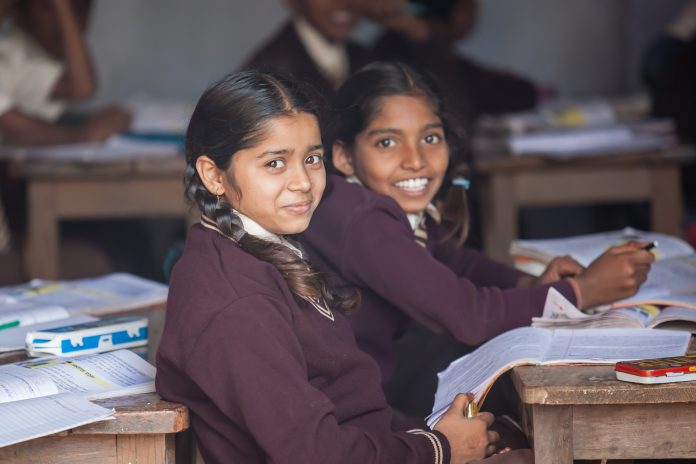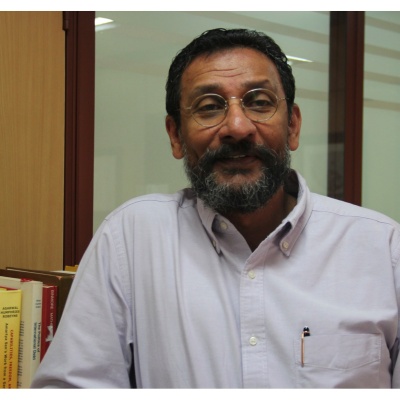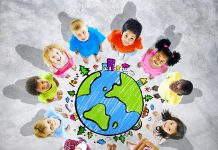Anantha Duraiappah, Director at UNESCO Mahatma Gandhi Institute of Education for Peace and Sustainable Development (MGIEP), describes a new social contract for education, including why science and evidence matter
A key point that has emerged from the ongoing global problems presented by climate change and the COVID-19 pandemic is the importance of rigorous peer-reviewed science and evidence for policy-making. Adam McKay’s recent satirical film of contemporary society, ‘Don’t Look Up’, poignantly highlights the dire consequences of habitually ignoring and denying science. The same can be said for our education systems.
The United Nations Educational, Scientific and Cultural Organization (UNESCO) released its much-awaited ‘Reimagining our futures together: A new social contract for education’ in November last year. The report points out the shortfalls of our present education system, calling instead for a system grounded in human rights and guided by principles of non-discrimination, social justice, respect for all life, human dignity and cultural diversity.
A worthy call, but the herculean challenge now is to find answers as to how this aspiration is achieved. How is the blueprint for implementation created?
The report recommends and requests countries adopt a participatory approach and engage in a global dialogue to design this ‘blueprint’. But is this sufficient? From our experience with climate change and the ongoing pandemic, we know well that although democratic dialogue is both necessary and important, we must also have evidence-based science as the foundation for good and effective policymaking and implementation.
Education: Why evidence matters
A scientific approach to the proposed social contract must start out with the fundamental question: what kind of education is needed and for what kind of society in the future?
A 2017 survey of millennials around the world found that seven out of 10 respondents believed education was for acquiring academic knowledge and readiness for the job market. Only 30% thought it should also be for building good citizens.
However, evidence from a large number of studies shows that monetary wealth and high paying jobs do not guarantee happiness or life satisfaction and can lead to unsustainable lifestyles. The latter is further evidenced by the exponentially increasing deterioration in mental health, which is now the second-largest health issue amongst younger generations.
Preliminary results from the International Science and Evidence-based Education (ISEE) Assessment – a two year initiative by the UNESCO category one Mahatma Gandhi Institute of Education for Peace and Sustainable Development (MGIEP), including over 260 scientists and experts from over 45 countries and covering more than 10 disciplines to be launched in March 2022 – suggests that an education system designed for human flourishing will lead to better training opportunities for jobs that offer a sense of joy, contribution to society and fulfilment.
ISEE experts put forward a definition of flourishing that draws not only from traditional disciplines such as philosophy, anthropology and human development, but also from areas like the neurosciences and psychology, which emphasise agency, neuroplasticity, individual potentiality, positive relationships and an enabling environment.
Another finding from the 2017 survey was a prevailing belief that learning is a purely cognitive endeavour. However, preliminary results from the ISEE Assessment suggest that learning is not a solely cognitive process, but also a symbiotic process involving the cognitive, social and emotional (CSE) areas of development. Emotions play a key role in our learning and behaviour, and reciprocally, our emotions and behaviour influence what and how we learn. These findings suggest that any educational system in the future should align curricula, teaching practices and learning evaluations with this ‘whole brain’ notion of neural interconnectedness and combined cognitive, social and emotional learning.
Additionally, the 2021 UNESCO MGIEP publication on screen time and health highlights that widespread beliefs that digital mediums have negative health impacts on children are unfounded. On the contrary, the ISEE found that digital learning offers the possibility of a foremost educational experience through personalised learning features. An education system that affords each learner a multitude of learning modes, including not only text, but also audio and video, offers a richer, more engaging, immersive and experiential experience. It also allows learners to be evaluated on a continual basis, providing support when needed. The learner becomes their own ‘benchmark’ focusing on their own potentiality. This aligns with the concept of human flourishing, which calls for optimal continual development of the potentiality of each individual.
Science & evidence in policy
Policy not grounded in science and evidence is likely to perpetuate existing insufficient education systems. While participatory and democratic processes for policymaking are imperative, these must also be supported by good and rigorous evidence-based science. Such science findings require a thorough peer[1]review process conducted by a multidisciplinary and multicultural team; results must also be replicable. Lastly, a word of caution – science and evidence do not offer a 100% foolproof solution – these are not the sole hallmarks of good science.
Every recommendation must explicitly inform policymakers of the confidence or certainty of success and/or failure. Going forward, let’s chart an educational blueprint for present and future generations of learners that is based on evidence-based science and not reliant on anecdotal data and information.
Contributor Profile
Editor's Recommended Articles
-
Must Read >> Education: Global citizenship for human flourishing
















